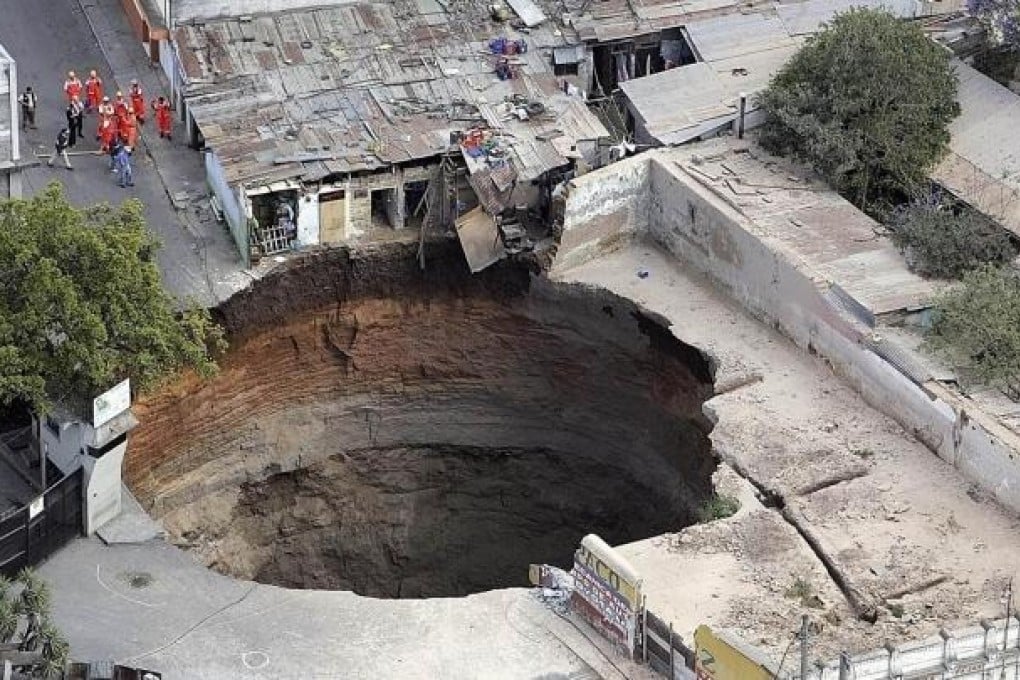Sinkholes: an act of geology, not God
Sinkholes are not an act of God but of geology. But what causes them and how common are they?

Last month, in a quiet residential suburb east of Tampa, Florida, the earth opened up and swallowed a man. Jeff Bush, 37, was tucked up in bed late on a Thursday evening when his entire bedroom floor simply gave way with a deafening crash that his brother, in the room next door, later described as "like a truck hitting the house".
Jeremy Bush, 35, heard his brother's scream and rushed towards his bedroom. "Everything was gone," he told local television stations. "My brother's bed, my brother's dresser, my brother's TV. My brother was gone. All I could see was the top of his bed, so I jumped in and tried digging him out. I thought I could hear him screaming for me and hollering for me."
He stared hopelessly at a gaping hole more than 9 metres across and 15 metres deep. His brother's body was never found.
Such incidents have also occurred in China and around the world. A spate of incidents involving random sinkholes in at least nine mainland cities in August killed four people and injured several others.
Early last month, a massive sinkhole opened up at a subway construction site in central Guangzhou. A 150-metre by 50-metre sinkhole in the Dachegnqiao town of Ningxiang, Hunan province, destroyed at least 20 houses in June 2010, though no one was killed.
Five shops and a three-storey building were swallowed by the nine-metre-deep hole, which covered an area of 300 square metres. No casualties were reported, but local residents said it was the second large instance of subsidence since 2004. A 2008 report by the Guangdong Geology Institute found the surrounding area was not geologically stable, though plans for two subway lines passing through the area still proceeded.
